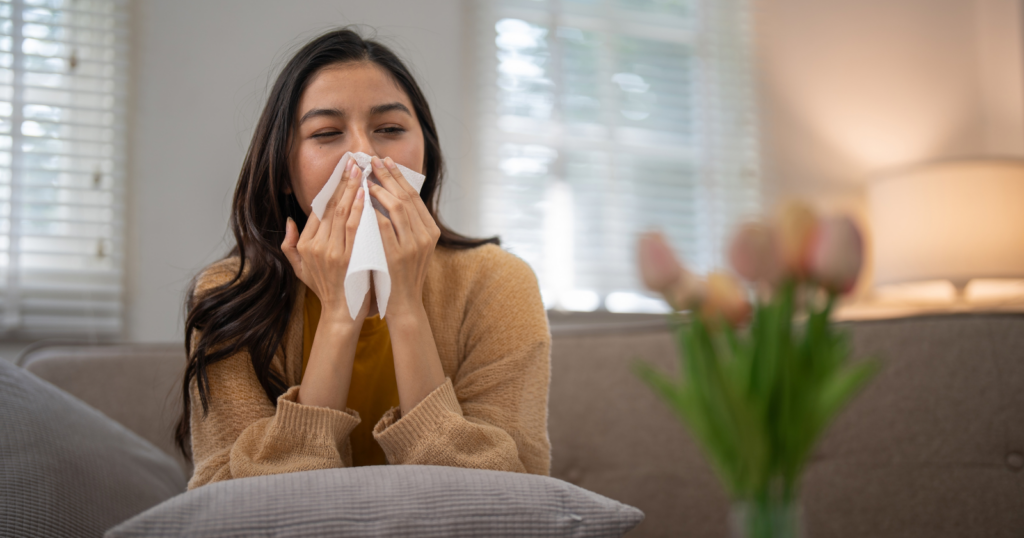Have you ever noticed that some people would rather live in the dark than face the potential bad news from a doctor? It’s a common behavior, and psychology has a lot to say about it.
This behavior is not just about avoiding the doctor, it’s about avoiding any information that could potentially disrupt their peace of mind.
According to psychology, there are seven specific behaviors displayed by those who would rather stay in the dark than seek medical advice.
In this article, we’re going to unpack these behaviors, and delve into why some individuals prefer to keep their heads in the sand when it comes to their health.
Don’t worry, we’ll keep it simple and conversational – no need for a medical dictionary here!
1) Avoidance behavior
Now we all know that procrastination is a common human behavior, but have you ever noticed how some people tend to ignore health issues until they become too severe to be overlooked?
It’s a classic case of ‘out of sight, out of mind’. People who would rather not know about potential health problems often display a strong tendency to avoid doctors and medical check-ups.
This is not just about being scared of bad news. According to renowned psychologist Carl Jung, “What you resist not only persists but will grow in size.”
In this case, the fear of potentially negative health news can lead to avoidance behavior, causing potential problems to escalate.
By ignoring or avoiding the issue, they believe they are maintaining peace of mind. However, in reality, they are potentially allowing a small issue to grow into a larger one.
The irony is that this avoidance behavior often leads to more stress and anxiety in the long run. And as we all know, stress is not exactly the best friend of good health.
So in an attempt to avoid stress by not going to the doctor, these individuals often end up causing themselves even more stress.
2) Rationalizing symptoms
I am sure we all have that friend or relative who, despite feeling unwell, seems to always have an excuse for their symptoms.
I remember my Uncle Joe, who, for the longest time, put his persistent cough down to his “pesky allergies” rather than consider it could be something more serious.
Famous psychologist Alfred Adler once said, “The only normal people are the ones you don’t know very well.” Well, in my Uncle Joe’s case, his ‘normal’ was rationalizing his symptoms as something less threatening.
Get Smarter Everyday Join Us On WhatsApp
This is a common behavior among those who prefer not to know about their health issues. They tend to downplay or rationalize their symptoms, thereby avoiding seeking medical advice.
It’s a defense mechanism that enables them to maintain their peace of mind without confronting the possibility of a serious health problem.
Ironically, Uncle Joe’s ‘pesky allergies’ turned out to be a treatable lung condition. If he had not eventually sought medical advice, it could have become much more serious.
This example serves as a reminder that rationalizing symptoms is not always the best approach when it comes to our health.
3) Fear of vulnerability
Ever wondered why some people avoid going to the doctor even when they are clearly unwell? Well, this behavior often stems from a deep-rooted fear of vulnerability.
We all like to think of ourselves as strong, invincible beings, don’t we?
But there’s something about sitting in a doctor’s office, discussing our health issues, that can make us feel incredibly vulnerable. And for some, this vulnerability is too much to bear.
One of the most influential psychologists, Brené Brown once said, “Vulnerability is not winning or losing; it’s having the courage to show up and be seen when we have no control over the outcome.” This quote rings especially true in this context.
It takes courage to face potential health issues head-on. It takes courage to admit that we are not invincible and that our bodies might need help.
But this fear of vulnerability often leads to avoidance behavior, causing people to ignore their symptoms and avoid seeking medical help.
In reality, there’s strength in seeking help, in admitting that we are not okay. But overcoming this fear is easier said than done.
It requires confronting our vulnerabilities and accepting that it’s okay to need help sometimes.
4) Denial and the illusion of invulnerability
 Denial is a powerful psychological defense mechanism that can often lead us astray, especially when it comes to our health.
Denial is a powerful psychological defense mechanism that can often lead us astray, especially when it comes to our health.
Think about the people who continue with unhealthy habits, such as smoking or excessive drinking, despite being fully aware of the potential health risks. It’s as though they believe themselves to be invincible, immune to the dangers that clearly exist.
Get Smarter Everyday Join Us On WhatsApp
A fascinating study by psychologist Neil Weinstein, titled “Unrealistic optimism about future life events”, found that individuals consistently overestimate the likelihood of positive events happening to them in the future while underestimating the likelihood of negative events.
This illusion of invulnerability is a form of denial and is often displayed by those who would rather not know about potential health problems.
They convince themselves that they are immune to health issues and thus, avoid seeking medical advice even when they are unwell.
The challenge here is breaking through this illusion and facing reality – a task easier said than done. But acknowledging our susceptibilities is the first step towards taking better care of our health.
5) Overreliance on self-treatment
Ever noticed how some people always seem to have a home remedy for every ailment, no matter how serious?
I remember a friend who would always choose to ‘sleep it off’ or sip on a homemade herbal tea instead of seeking medical advice when she felt unwell.
Sigmund Freud, the father of psychoanalysis, once said: “We are never so defenseless against suffering as when we love.” This quote could be adapted to our context as: “We are never so defenseless against suffering as when we self-medicate.”
An overreliance on self-treatment is a common behavior among those who would rather not know about potential health issues.
They convince themselves that they can manage their symptoms without professional help, thereby avoiding the potential bad news that may come with a doctor’s visit.
Now, don’t get me wrong, I’m all for home remedies and the empowerment of taking care of one’s health. But it becomes a problem when it’s used as an excuse to avoid confronting potentially serious health issues.
So for those of you who are fond of ‘sleeping it off’ or sipping on your grandma’s special tea, remember that there’s no substitute for professional medical advice.
6) Fear of the known
It may seem counterintuitive, but sometimes, it’s not the fear of the unknown that keeps people away from doctors, but the fear of the known.
What does this mean? Well, consider someone who has a family history of a particular disease. They grow up hearing about it, seeing its effects, and it becomes a looming presence in their life.
The fear that they might discover they have that same disease can be overwhelming enough to keep them from seeking medical help.
Get Smarter Everyday Join Us On WhatsApp
Carl Rogers, one of the most well-known psychologists, once said: “The curious paradox is that when I accept myself just as I am, then I can change.”
In our context, it translates to accepting the possibility of having a health issue as the first step towards addressing it.
But for those fearing a known health issue, this acceptance can be tough to come by. However, it’s important to remember that early detection often offers more treatment options and better outcomes.
So while the fear is understandable, not letting it stand in the way of seeking medical help is crucial.
7) Lack of trust
Finally, a simple but significant reason why some people avoid doctors is a lack of trust. They may have had negative experiences in the past or heard stories that have led them to view medical professionals with suspicion.
Albert Bandura, a renowned psychologist, said, “In order to succeed, people need a sense of self-efficacy, to struggle together with resilience to meet the inevitable obstacles and inequities of life.”
When trust in the medical system is low, this sense of self-efficacy can be hard to maintain.
Overcoming this lack of trust is essential for ensuring individuals seek help when needed. After all, health should never be compromised due to distrust.
Final reflections
Human behavior is complex, influenced by various factors including our upbringings, experiences, and even our fear of the unknown. When it comes to health, these behaviors can often lead us to act against our best interests.
From avoiding doctors due to fear of vulnerability to rationalizing symptoms and living in denial, we’ve explored the psychology behind why some people choose to remain in the dark about their health issues.
But perhaps understanding these behaviors is the first step towards changing them. If we can acknowledge our fears and anxieties, we might be better equipped to confront them and seek help when needed.
After all, health is one aspect of life where ignorance certainly isn’t bliss. The courage to face potential health issues head-on is invaluable, and it’s a courage that we all can cultivate.
So as we come to the end of this introspective journey, let’s take a moment to reflect on our own behaviors. Are we guilty of any of these? And if so, what can we do to change them?
Because when it comes to health, knowledge truly is power. And sometimes, seeking that knowledge requires a bravery that’s worth celebrating.
Get Smarter Everyday Join Us On WhatsApp







